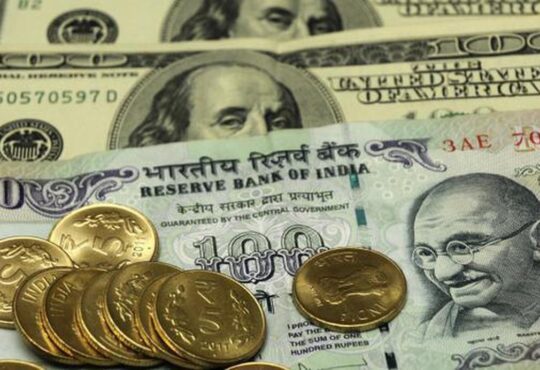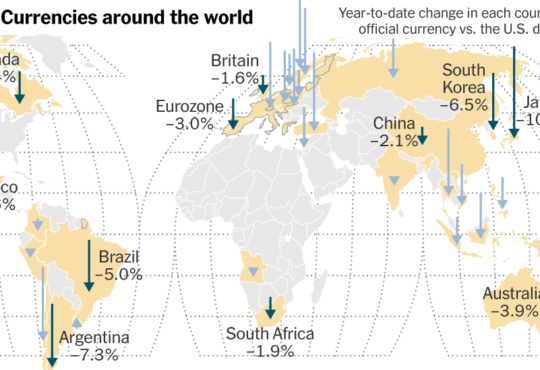

CBDC vs cryptocurrency: Experts are speculating as to which asset will rule the market in 2023
The Organization for Economic Co-operation and Development (OECD) has decided to work on regulating cryptocurrencies and all other forms of cryptocurrency assets. They are working on developing a framework by presenting the Crypto-Asset Reporting Framework (CARF), which is meant to automatically exchange information on cryptocurrency assets between various countries. India’s Presidency at G20 has once again raised hopes for the crypto industry in India. Over the past couple of years, India has been at the forefront of regulating digital currencies. Not just India, but several other countries have been planning on introducing CBDCs. Now experts speculate as to what kind of digital currencies will get more traction and attract investors. The battle between CBDC vs cryptocurrency is on! CBDCs are now becoming government favorites, apparently, these types of digital assets are quite easily manageable by government organizations, which is why more global governments are coming forward to introduce CBDCs, instead of cryptocurrency assets. Experts believe that after the release of G20 crypto regulations, more and more countries will come forward to adopt CBDC coins. Here, we have listed the top countries enroute G20 regulations that have already introduced CBDCs and will continue to adopt more rules in the future.
USA
For a long period of time, the Federal Reserve in the US did not give any clear direction for the launch of its digital currency. But the Biden government has taken several initiatives to uplift the condition of cryptocurrencies in the country. US’ government agencies have been working to develop their own frameworks and policy recommendations to address several priorities to control crypto scams. The US CBDC is expected to offer several facilities including fighting crimes.
India
India is another major country that is working on regulating cryptocurrencies and has already introduced its CBDC. The Indian government is working on several methods that will prevent users from indulging too much in digital assets. Finance Minister, Nirmala Sitharaman has already stated that India’s digital rupee will boost the Indian economy in several ways and minimize the cost of currency management.
China
China is quite strict when it comes to using cryptocurrencies. The country has already banned digital assets and crypto mining, which led to several burgeoning crypto companies leaving the country and set up shops in more lenient and crypto-friendly countries. However, the Chinese government has opened up about its digital yuan that can be used across 23 major cities in the country, including Beijing, Shenzhen, and Shanghai, to name a few.
Russia
Russia is another country that has joined the growing list of governments focusing in CBDC development. Based on reports by the Bank of Russia, the country’s latest monetary policy will focus on connecting all banks and credit institutions to the double rouble platform in 2024.
South Korea
The Bank of Korea has recently completed its second phase of retail CBDC simulations. The digital won simulations proved successful in offering offline payments and cross border remittances, however, the developers are working on resolving a few performance issues with the blockchain technology.
Nigeria
Nigeria launched its CBDC in the fall of 2021, but not many Nigerians are interested to use the coin. Reports suggest less than 0.5% of Nigerians are using the CBDC. To put that in perspective, it seems like the people in Nigeria are more interested in using traditional cryptocurrencies, instead of the regulated cryptocurrencies.
Brazil
Brazil will supposedly launch a CBDC in 2024. Experts believe that this move can contribute to its status as an economic leader in South America. Survey suggests that as of this year, there are more than 30 million Brazilian citizens who have no access to traditional banking services, or credit or debit cards.
Bahama
The Bahamas has introduced Sand Dollar, a CBDC that is a direct liability to the country’s central bank and is backed by foreign reserves. The Sand Dollar was introduced in October 2020 and back then, it became the first government-backed money, legally under the obligation of the Central Bank of the Bahamas.
Thailand
The Central Bank of Thailand has been constantly pushing to develop retail CBDC to ensure that it offers additional benefits to the financial system with good risk management capabilities. As of now, the government is only working on successfully completing the pilot test of its Retail CBDC by the end of this year.
Australia
According to reports, the CBDC pilot program in Australia has received more than 140 use case proposals from the finance industry. Still, the Reserve Bank of Australia has warned about the negative implications of cryptocurrencies and how avoiding them altogether will be good for their finances.






